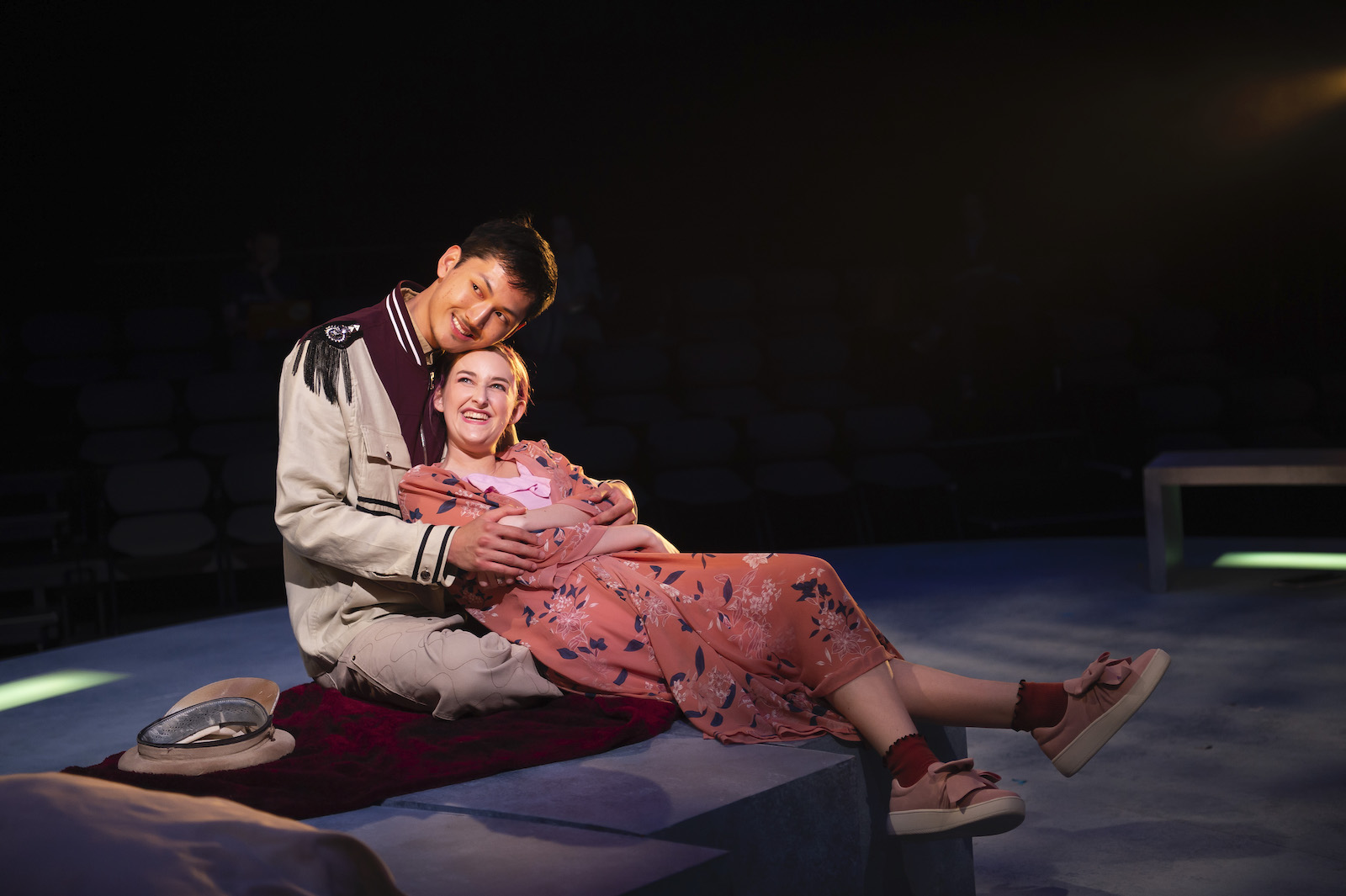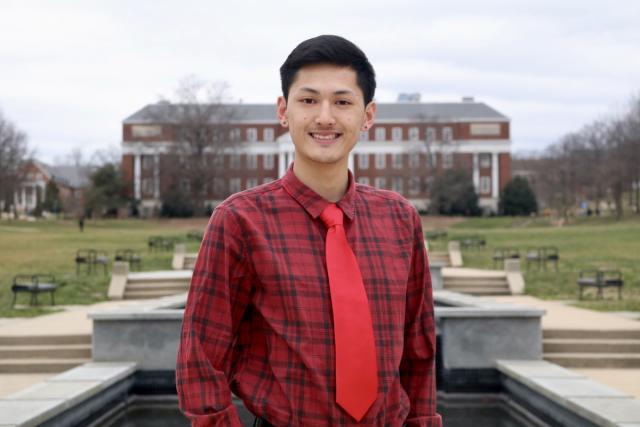Nelson Chen Seeks to Make Space for Asian American Stories
April 25, 2023

The junior theatre major and Asian American studies minor is combining his disciplines in innovative ways.
By Jessica Weiss ’05
He’s currently playing a leading role in the School of Theatre, Dance, and Performance Studies’ production of “The Late Wedding,” but Nelson Chen ’24, a theatre major with a minor in Asian American studies, is also busy pushing for a task force to create a new major in Asian American studies at UMD and campaigning for reelection as an Arts and Humanities Representative in the Student Government Association.
Chen’s experience at UMD has been full and dynamic but always grounded in community and with plenty of space to explore his many interests and passions outside of class, he said.
We recently caught up with Chen during a moment of downtime.
How did you get into theater?
My theater journey started in high school, where I acted in school musicals and plays, and I knew I wanted to focus on it in college. At UMD I felt welcomed as a theatre major right away. I’ve been able to meet great faculty and have so many experiences. It’s been really well-rounded—I’ve taken classes in stage management and scenic design, acting, techniques, playwriting, performance and more—and I love it so much. I even discovered a love for playwriting that I never expected.
Currently, you play the Narrator, the General and the Sailor in “The Late Wedding.” Can you tell us about this dynamic role?
This play is a comedy about love, marriage and a celebration of life. It has like 18 roles but in the script, it's up to the director how large or small of a cast size they want in order to tell the story with these characters. This specific production has a cast of six people. So I play the Narrator/General/Sailor, and I have a different voice and physicality for each of them. Creating these characters and making them dynamic with the director, choreographer and the rest of my cast has been absolutely amazing. This is my favorite show I've ever worked on so far, and I can't wait to share this story with the rest of the world through these characters.
How did you decide to add a minor in Asian American studies?
My parents were immigrants from China and I feel really close to my heritage. Actually, I was raised for the first part of my life by my grandma in New York City and I have core memories of her taking me to the Buddhist temple, saying prayers, walking with her and holding her hand through Chinatown, eating the most delicious Chinese foods from stalls in the street. I was involved in Asian American student groups in high school. In my first semester of freshman year at UMD, I took a comparative ethnic studies course and it opened me up to so many new perspectives and to this idea of intersectionality. I knew then I wanted to take on the Asian American studies minor. It’s been great and has really helped me think about Asian American culture and our unique positioning in this country. I’ve made amazing connections with faculty and mentors. Through that, I’ve gotten more involved in activism on campus, such as in the Asian American Student Union, and I’m now helping to push for a major in Asian American studies here at UMD.
Do you see any overlap between your major and minor?
Totally. Asian American studies has provided me with an interdisciplinary approach to how I view theater and the arts overall. I identify strongly with the Asian American community, as well as with the LGBTQ+ community as a gay male. For me, it’s all about humanizing people. How can I portray people in these communities in ways they haven’t been portrayed before? There are so many stereotypes that I think are harmful and not beneficial to my community, so how can I subvert them through theater? I feel driven to write these stories and characters and put that into the mainstream. From there I also feel called to humanize these communities through activism and working in solidarity with other people of color.
Your play “Eggs and Tomatoes,” which was performed during the Fearless New Play Festival in February, speaks to some of these issues.
Yes, I wrote this play loosely based on my life and my experiences as a gay Asian American male. Stir-fried eggs and tomatoes is a Chinese dish that I ate growing up. My grandma cooked it, my mom cooked it and now I’ve learned how to cook it. In the play, the main character Jack comes out to his mom, but the unique thing is that he couldn’t find the words to do it in English, his dominant language, so he came out in his mother’s native tongue, Mandarin. It was subconscious for him because he wanted to find a connection with her. The play explores the nuance of love within the Chinese American context, where people may show love through food, family recipes, through language. I wrote the play, worked with a director, a dramaturg, and then a cast of undergraduates. It was an amazing experience being on the other side of things, being able to see people act out my work.
What’s next for you?
This summer I plan to write a full-length play about my Chinese American family and other historical events and next fall I’ll perform in another play at The Clarice. I’ll also continue to advocate for an Asian American studies major and volunteer in different ways on campus. This is why I love the theater program—it’s flexible but there’s also so much support and grounding. Down the line, I hope to continue to create Chinese American theater and to work in arts activism, ensuring there’s more diversity, inclusion and equity in programming and the voices and stories being told.
Top image of "The Late Wedding" by Lisa Helfert. Headshot courtesy of Nelson Chen. Bottom image of "By the Way, Meet Vera Stark" by David Andrews.



